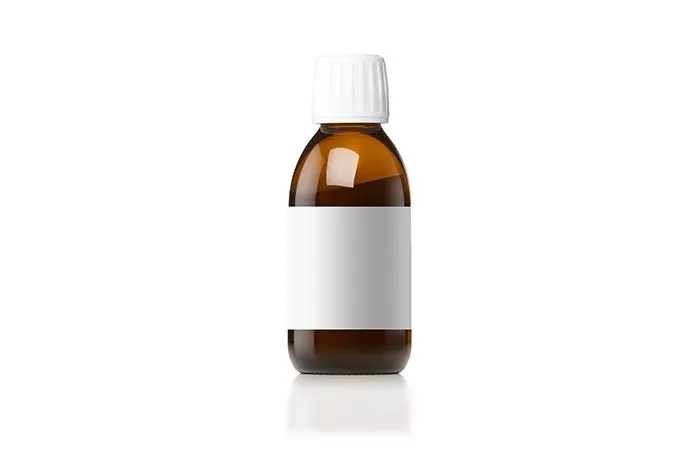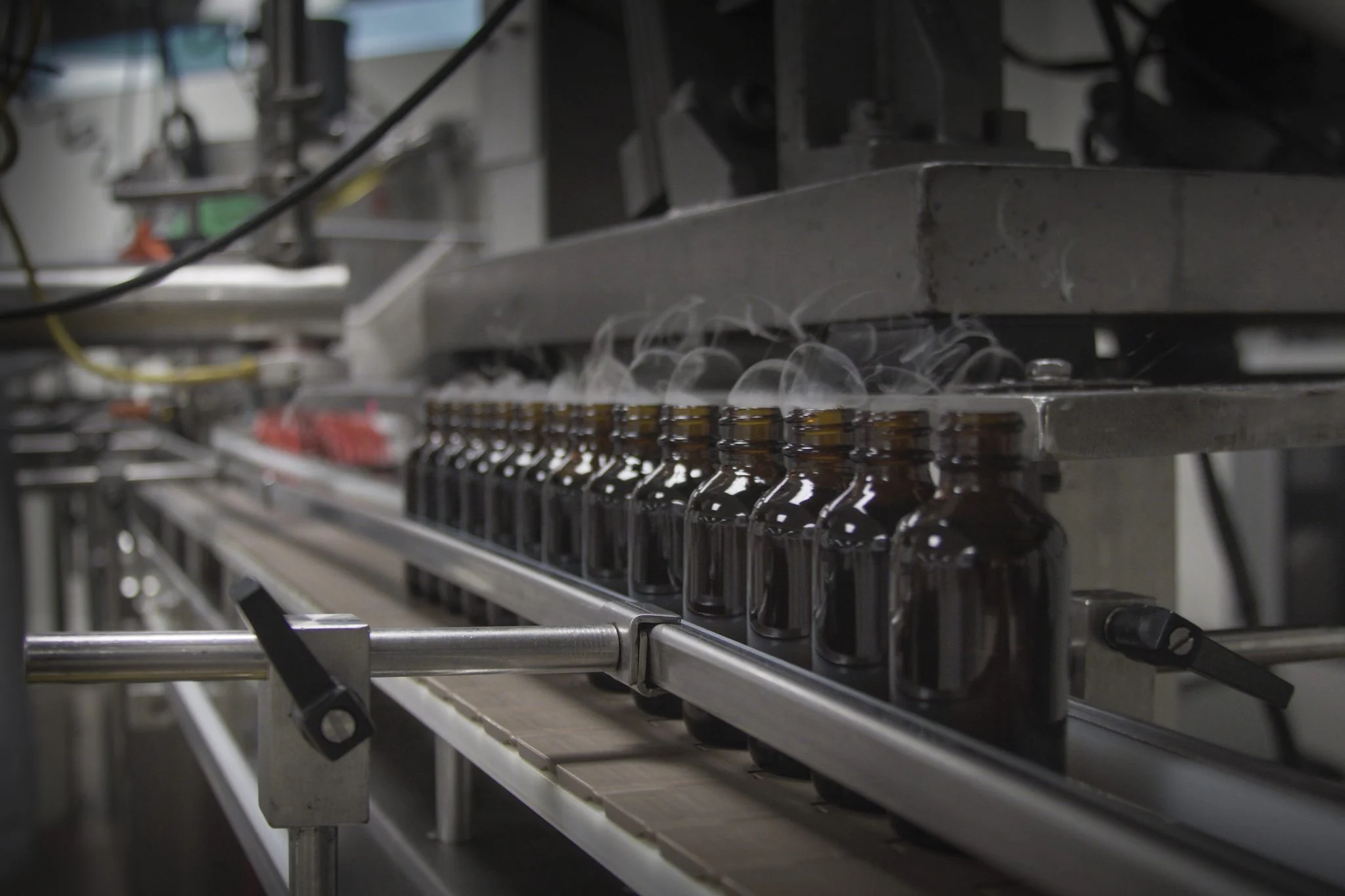Starting a supplement brand is an exciting venture, but the path to market can be complex. While capsules and powders dominate the shelves, a powerful and growing niche offers a significant competitive edge: suplementos líquidos. If you’re looking to launch a product that stands out, offers superior benefits, and meets modern consumer demands, private labeling liquid supplements is your most strategic move.

This comprehensive guide will walk you through everything you need to know. We’ll cover the market opportunity, the step-by-step manufacturing process, cost considerations, and how to choose the perfect partner to bring your vision to life.
Why Choose Liquid Supplements? The Market Opportunity for Your Brand
Before diving into the “how,” let’s explore the “why.” The shift toward liquid supplements isn’t just a trend; it’s a response to consumer demand for more effective, convenient, and user-friendly health products.
Superior Bioavailability and Faster Absorption
One of the most significant benefits of liquid supplements is their bioavailability. Unlike pills or capsules that need to be broken down by the digestive system, liquids are readily available for absorption. This means the body can utilize the active ingredients more quickly and efficiently. For consumers seeking tangible results, this is a powerful selling point. In fact, many studies suggest higher bioavailability for nutrients delivered in liquid form.
Enhanced Convenience and Dosing Flexibility
Swallowing large pills can be a challenge for many, including children and older adults. Liquid supplements eliminate this barrier, offering a pleasant and easy consumption experience. They can be taken directly, mixed into drinks, or added to food. This format also allows for precise, flexible dosing—a few drops or a specific milliliter measurement—which is difficult to achieve with fixed-dose capsules.
Tapping into a Growing Market Niche
The demand for personalized and effective wellness solutions is at an all-time high. Brands that offer liquid vitamins, tinctures, and liquid collagen are carving out a profitable space in a crowded market. By choosing this format, you’re not just selling a supplement; you’re providing a modern solution that aligns with supplement industry trends focused on performance, convenience, and inclusivity.

The 6-Step Process: From Concept to Market-Ready Product
The journey of private labeling supplements can be streamlined into a clear, manageable process. A reliable manufacturing partner will guide you through these stages, often providing turnkey private label supplements solutions that handle the heavy lifting. Here’s a typical roadmap:
Step 1: Niche & Product Idea Validation
Before you invest, validate your idea. Who is your target audience? What problem does your product solve? Research trending ingredients like liquid collagen, vitamin D3+K2 drops, or herbal tinctures. A strong concept is the foundation of a successful brand.
Step 2: Choosing a GMP-Certified Manufacturing Partner
This is the most critical decision you’ll make. Your partner must be a GMP (Good Manufacturing Practices) certified liquid supplement manufacturer. This non-negotiable certification ensures your product is produced in a clean, controlled, and compliant environment. Look for manufacturers registered with the FDA.
Step 3: Custom Formulation vs. Stock Formulas
You have two primary options:
- Stock (White Label) Formulas: Pre-developed, market-tested formulas you can brand as your own. This is the fastest and most cost-effective way to launch.
- Custom Formulation: Develop a unique formula from scratch. This offers maximum differentiation but involves higher costs and longer development times.
Step 4: Branding, Label Design, and FDA Compliance
Your brand is your identity. Develop a compelling brand name, logo, and packaging design. Your manufacturer’s design team should ensure your label is not only attractive but also fully compliant with FDA regulations, including the supplement facts panel, ingredient list, and necessary disclaimers.
Step 5: Production, Bottling, and Quality Control
Once the formula and label are approved, production begins. Raw materials are sourced and tested, your supplement is blended and bottled, and rigorous quality control checks are performed at every stage to ensure purity, potency, and safety.
Step 6: Fulfillment and Logistics
After production, your product is ready for the market. Many manufacturers offer fulfillment services, storing your inventory and shipping orders directly to your customers (D2C) or to distribution centers like Amazon FBA.

Understanding the Costs: What to Budget for Your Private Label Venture
One of the first questions every entrepreneur asks is: “What is the cost of private label supplements?” While there’s no single answer, understanding the key variables will help you budget effectively.
Key Factors Influencing Your Per-Unit Cost
- Ingredient Quality: Exotic or patented ingredients cost more than common vitamins.
- Formula Complexity: A multi-ingredient, complex formula is more expensive to produce than a simple one.
- Packaging: Custom glass bottles with droppers will cost more than standard plastic bottles.
- Order Volume: The higher your order quantity, the lower your per-unit price.
The Truth About Minimum Order Quantities (MOQ)
MOQ is the smallest order a manufacturer will accept. For liquids, this can range from 500 to 2,000+ units. While a high MOQ can be a barrier, don’t let it be the only factor. A reputable low MOQ liquid supplement manufacturer may offer competitive pricing, but always verify their certifications and quality standards. Sometimes, a slightly higher MOQ with a top-tier partner is a better long-term investment.
One-Time Costs vs. Recurring Costs
- One-Time: Custom formula development fees, logo and label design services.
- Recurring: Inventory (the cost of the product itself), shipping, and marketing.
How to Choose the Right Liquid Supplement Manufacturer
Selecting the right partner is crucial for your brand’s success. Use this checklist to find a reliable supplement manufacturer that aligns with your goals.
Checklist Item 1: Certifications (GMP, NSF, FDA Registered)
As mentioned, this is non-negotiable. Ask for proof of their GMP certification, preferably from a third-party auditor like NSF. Ensure their facility is registered with the FDA, as it is governed by the FDA‘s strict regulations for dietary supplements.
Checklist Item 2: Formulation Expertise & In-House Lab
Does the manufacturer have experienced chemists and food scientists on staff? An in-house laboratory for testing raw materials and finished products is a strong indicator of a commitment to quality and safety. This allows for both custom formulation and rigorous quality assurance.
Checklist Item 3: Transparent Communication & Support
A good partner acts as an extension of your team. They should provide you with a dedicated account manager, communicate clearly at every step, and be responsive to your questions. Avoid any manufacturer that is vague about pricing, timelines, or their processes.
Checklist Item 4: Scalability and Turnkey Solutions
Choose a partner you can grow with. Do they offer a range of services beyond just manufacturing, such as branding, packaging design, and order fulfillment? A true turnkey partner can save you immense time and effort, allowing you to focus on marketing and growing your brand.
Preguntas más frecuentes (FAQ)
Is private labeling supplements profitable?
Absolutely. With the right product, branding, and marketing strategy, private labeling is highly profitable. It allows you to enter the market with lower risk and investment than building a manufacturing facility from scratch, offering high-profit margins.
What are the typical MOQs for suplementos líquidos?
MOQs can vary widely based on the manufacturer and product complexity, but a typical range is between 1,000 and 2,000 units per order. Some manufacturers may offer lower MOQs for simple, stock formulas.
How long does the entire private label process take?
From initial consultation to having a market-ready product, the timeline is typically 8-12 weeks. This can be faster for stock formulas (4-6 weeks) or longer for complex custom formulations that require extensive testing.
Can I create a fully custom liquid formula?
Yes. The best manufacturers have R&D teams that can help you develop a unique, proprietary formula tailored to your brand’s vision and your customers’ needs.
What are the FDA requirements for supplement labels?
The FDA has strict guidelines for supplement labels. They must include a statement of identity, net quantity of contents, a supplement facts panel, an ingredient list, and the name and address of the manufacturer or distributor. Health claims are highly regulated and must be substantiated. A good manufacturing partner will ensure your label is 100% compliant.
Ready to Launch Your Liquid Supplement Brand?
Navigating the world of private label liquid supplements is a journey of strategic decisions. By focusing on quality, partnering with a certified expert, and understanding the needs of your customers, you can build a thriving brand that stands out. The liquid format offers a clear path to differentiation and consumer satisfaction.
Turn Your Vision into a Bestselling Product
At CHTNature, we specialize in creating high-quality, turnkey private label suplementos líquidos. Our GMP-certified, FDA-registered facility and expert team are here to guide you through every step of the process, from custom formulation to fulfillment.
Contact us today for a free, no-obligation consultation and let’s build your brand together.

